Deposition Perjury: Must the Lawyer Blow the Whistle?
by FRED C. MOSS, who is an emeritus professor of law at SMU Dedman School of Law. He has taught and consulted on legal ethics for over 30 years.
LIT Editors’ Note:
On Oct. 25th, 2019, The States’ highest court reminded the circuit in length and in particularity, addressing “federal judges” (who are also lawyers) in Texas of their Oath and legal obligations in reporting attorneys before them, who act in bad faith, malice, dishonesty and lack of integrity and trustworthiness. See the Supreme Court of Texas case of COMMISSION FOR LAWYER DISCIPLINE v. MARK A. CANTU.
Consider the following scenario: Your client is being deposed. Unexpectedly, he tells a highly material lie. There is no doubt the testimony was false given what he previously told you. At the next break, you urge him to correct the lie, but he refuses and directs you to do nothing to expose the falsehood. What do you do?
Texas Disciplinary Rules of Professional Conduct Rule 3.03(b) states that if a lawyer offers material evidence before a tribunal and knows or later learns it was false, the lawyer must “take reasonable remedial measures, including disclosure of the true facts.” Rule 3.03(a)(2) requires a lawyer to reveal perjury to avoid “assisting” the client’s fraud or crime.1
But, do these rules apply to depositions? If not, does Rule 4.01(b) apply? That rule requires a lawyer to disclose a material fact if necessary to avoid assisting the client’s fraud or becoming a “party” to the client’s crime.
Finally, if disclosure is required under either rule, when must it be made? Surprisingly, all of these questions are unresolved in Texas.
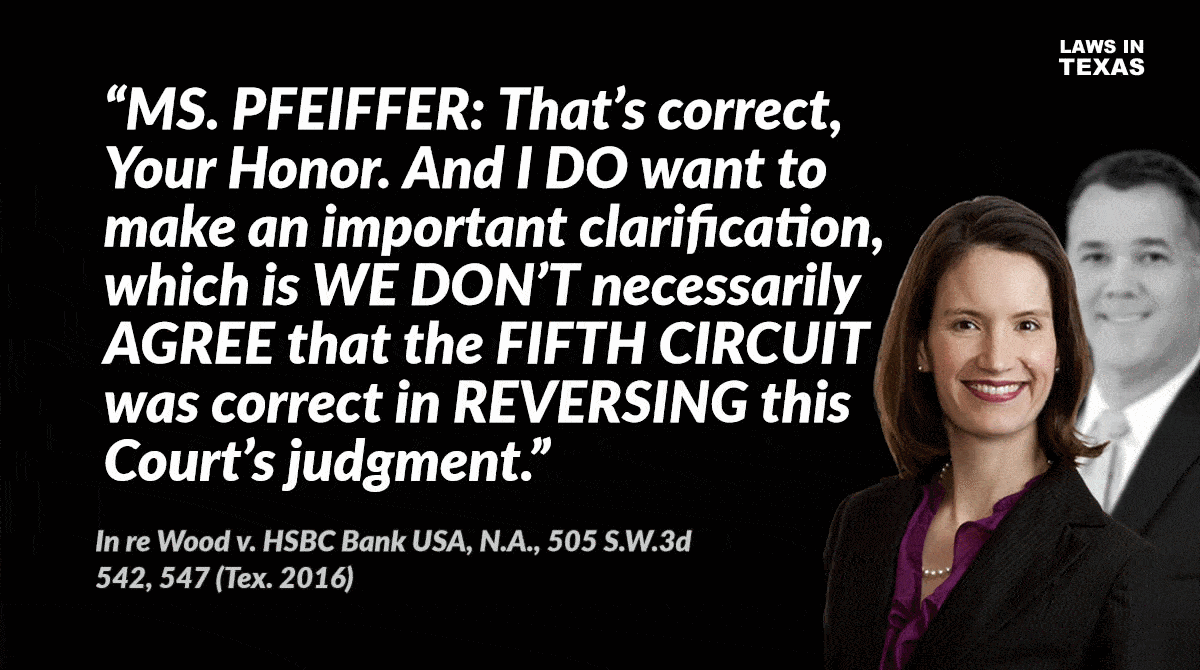
Rule 3.03 and Deposition Perjury
Rule 3.03 is titled “Candor Toward the Tribunal.” However, keep in mind that deposition testimony is not usually given before a tribunal.
While American Bar Association Model Rule 3.3, Comment 1, applies its corresponding rule to a tribunal’s “ancillary proceedings,” including depositions, Texas has not explicitly adopted this position.
Even if Rule 3.03 applies to depositions, it can be argued that the lawyer in the posited situation did not “offer” the false evidence. Comment 13 to the rule states that the duty to take remedial measures, including disclosure, does not apply when the perjury occurs under questioning by another party. Normally, deposition testimony is in response to an opposing lawyer’s questions.
While the comment clearly addresses perjury under cross-examination at trial, it would be anomalous if disclosure was not required at trial but was required at deposition.2
It also could be argued that the lawyer is not “assisting” the client’s fraud/crime as long as the lawyer does not use the false testimony to further the client’s position.
Comment 13 says that when the perjury is elicited by the other side, the lawyer’s only duty is to urge the witness to correct the falsity or withdraw from the representation.3
Finally, if Rule 3.03 requires a lawyer to correct deposition perjury, it may not have to be done during the deposition.
Remedies less prejudicial to the client may be available that are not available at trial. With time, a lawyer may be able to persuade the client to correct, clarify, or withdraw the false testimony after the deposition.
Extending Rule 3.03 to Depositions
Uncorrected deposition perjury can have a substantial impact upon a lawsuit. It may cause an opponent to seriously misperceive the comparative strength of its case and lead to a settlement or a dismissal that is unjust. Addressing deposition perjury, ABA Ethics Opinion 93-376 (1993) noted:
Even before [false testimony is] filed there is potential ongoing reliance upon [its] content which would be out-come-determinative, resulting in an inevitable deception of the other side and a subversion of the truth-finding process which the adversary system is designed to implement.4
The opinion also observed that “[c]ontinued participation by the lawyer in the matter without rectification or disclosure would assist the client in committing a crime or fraud.” Texas Disciplinary Rules of Professional Conduct Rules 3.03(a)(2) and 1.02(c) prohibit such assistance.
While the lawyer may avoid “assisting” the client’s fraud further by withdrawing from the representation, “withdrawal can rarely serve as a remedy for the client’s [already committed] perjury,” the ABA opinion noted.
“[T]he lawyer [is required] to do more than simply distance herself from the client’s fraud [by withdrawing].”
The Texas Disciplinary Rules of Professional Conduct “are governed by a strong public policy of not affording protection to client information where the client seeks to use the services of the lawyer to aid in the commission of a crime or fraud.”5
Lawyers are required “to be truthful and to avoid assisting or condoning criminal or fraudulent acts or denigrating the justice system or subverting the litigation process.”6
Certainly, failing to correct, disavow, or reveal material deposition perjury amounts to condoning if not assisting the client’s misconduct. Thus, Texas Ethics Opinion 473 (1991) ruled that a lawyer who learned that his or her criminal client had falsely claimed to be indigent must disclose the truth in order to avoid assisting the client’s criminal or fraudulent conduct although the client did not lie in open court.
The ABA has applied the disclosure requirement to depositions because false material evidence, regardless of who elicited it, can adversely affect the outcome of the adjudicatory process. This seems uncontestable.
Rule 3.03’s comment should be amended to apply the disclosure requirement to depositions if the client or witness refuses to correct or disavow his or her false material testimony before serious settlement negotiations begin.7
What is absolutely clear is that the lawyer cannot use the false evidence to support the client’s contentions in pre-trial motions, settlement negotiations, or trial.8
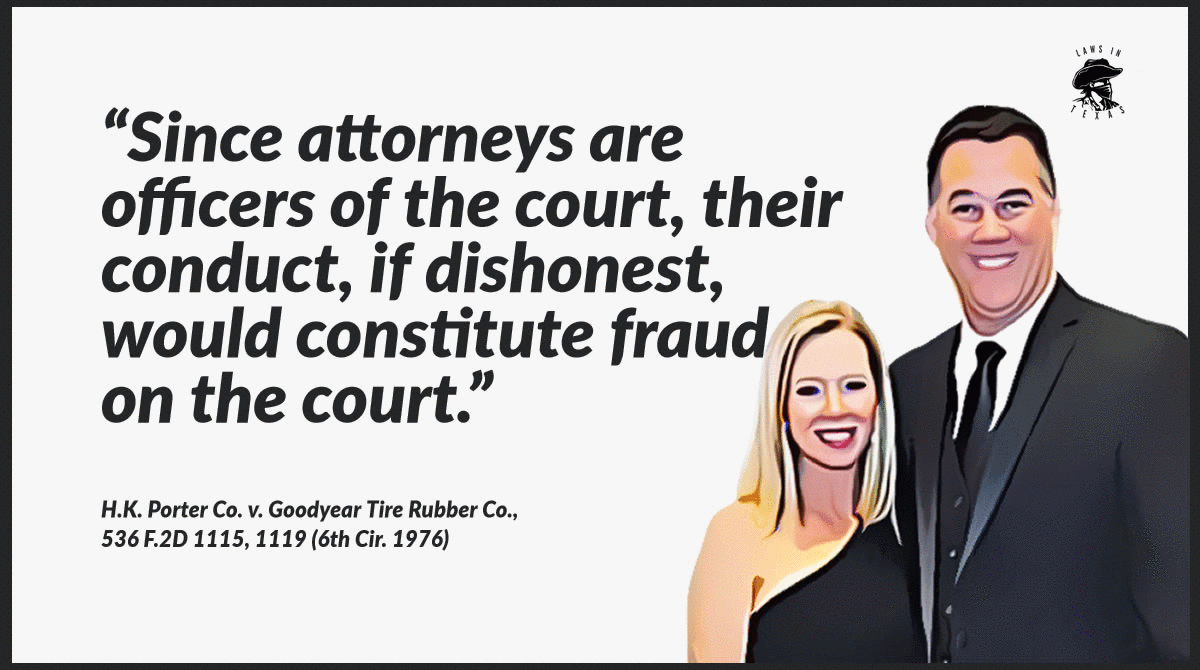
Application of Texas Disciplinary Rules of Professional Conduct Rule 4.01(b) to Deposition Perjury
Rule 4.01(b) requires disclosure of material facts when necessary to avoid “making the lawyer a party to a criminal act or knowingly assisting a fraudulent act perpetrated by a client.” Deposition perjury is both a fraud and a crime.9
The rule is not confined to conduct before a tribunal.
However, Comment 3 to Rule 4.01 seriously limits the rule’s disclosure requirement. It states that even when it would prevent the lawyer from assisting or becoming a party to the client’s crime or fraud, “Failure to disclose under such circumstances is misconduct only if the lawyer intends thereby to mislead.”
This implies that if the lawyer fails to disclose the perjury solely to avoid getting the client into legal trouble or otherwise damaging the client, the lawyer does not violate Rule 4.01(b). Surely, this is incorrect. The rule requires only that the lawyer “knowingly” fail to disclose material facts when necessary to prevent the client’s fraud or crime. No intent to mislead is found in the rule, and comments cannot add required elements to a rule.10
While the client must have the intent to deceive, the lawyer does not. The lawyer’s intent may be relevant to whether the lawyer is an accessory to the client’s fraud or crime as a matter of law, but not for purposes of professional discipline.
Putting aside this “unclear” 11 comment, Rule 1.05(f) is clear that Rule 4.01(b)’s obligation to disclose material facts to avoid becoming a party to or assisting a client’s fraud or crime is an exception to the duty of confidentiality. Hence, the key issue is the same as found in Rule 3.03(a)(2): Is failure to disclose the true facts “assisting” the client’s deposition fraud or crime?
If a client’s material deposition perjury is not covered by Rule 3.03, it should be covered by Rule 4.01(b). The falsehood could have a significant impact on the just outcome of the case.
The strong public policy in favor of protecting the integrity of the adversary process and the lawyer’s duty as an officer of the court should trump the protection of perjurious clients and witnesses.12
The failure of the offending party’s lawyer to ensure the correction of deposition perjury condones and assists fraud and undermines the justice system by allowing the client to maintain an improper advantage in the fight.
TXBODA.ORG: Texas Attorney Complaint(s) – The Burkes are left again to Wonder How their Complaint(s) could be Dismissed by BODA after Dismissal By the State Bar of Texas CDC – after review of Moss’s Article which aligns with the Burkes arguments. #AuditTexas
NOTES
1. A client’s surprise perjury or announced intention to commit perjury falls within the “crime-fraud” exception to the lawyer-client privilege because the client has sought or used the lawyer’s assistance to commit a crime or fraud. See Tx. R. Evid. 503(d)(1).
2. Schuwerk & Hardwick, Handbook of Texas Lawyer and Judicial Ethics, 48A Tex. Practice Series § 8.3, n. 87 (2018), and 1 McDonald & Carlson, Texas Civil Practice,§ 2.41 (2d ed. 2004), assume that Rule 3.03(b) applies to deposition perjury, even if elicited under questioning by the opposing party. This appears to be incorrect in light of comment 13. (See, e.g., Schuwerk & Hardwick, supra § 8.3 pp. 60-63.).
3. Tex. R. Civ. P. 193.5. The Texas lawyer’s duty to supplement and correct discovery responses applies only to written responses.
4. The opinion cites two cases faulting lawyers for failing to inform their opponent of highly material facts prior to trial. See also Feld’s Case, 737 A.2d 656 (N.H. 1999)(Lawyer disciplined for failing to correct client’s false deposition testimony).
5. Tex. Ethics Op. 480 (1991) (Lawyer, told by his client following his bankruptcy trial that he committed undisclosed creditor fraud prior to trial, is required by Rule 3.03(b) to reveal the fraud even though the client did not testify falsely at trial).
6. Tex. Ethics Op. 664 (2016).
7. Likewise, comment 13 to Rule 3.03 should be deleted.
8. Tex. R. Civ. P. 3.03(a)(5), 4.01.
9. Tex. Penal Code § 37.02.
10. Tex. Disc. R. Prof. Conduct. Preamble para. 10.
11. See Robert P. Schuwerk & John F. Sutton Jr., A Guide to the Texas Disciplinary Rules of Professional Conduct, 27A Houston L. Rev. 348, n. 25 (1990). (“The precise import of this sentence is unclear . . . [but] should not be read as excusing a lawyer’s nondisclosure merely because the lawyer had dual purposes, only one of which was culpable.”). Again, requiring the lawyer to have the intent to deceive is questionable.
12. See Tex. Disc. R. Prof. Conduct. R. 1.05, cmts. 1, 11.
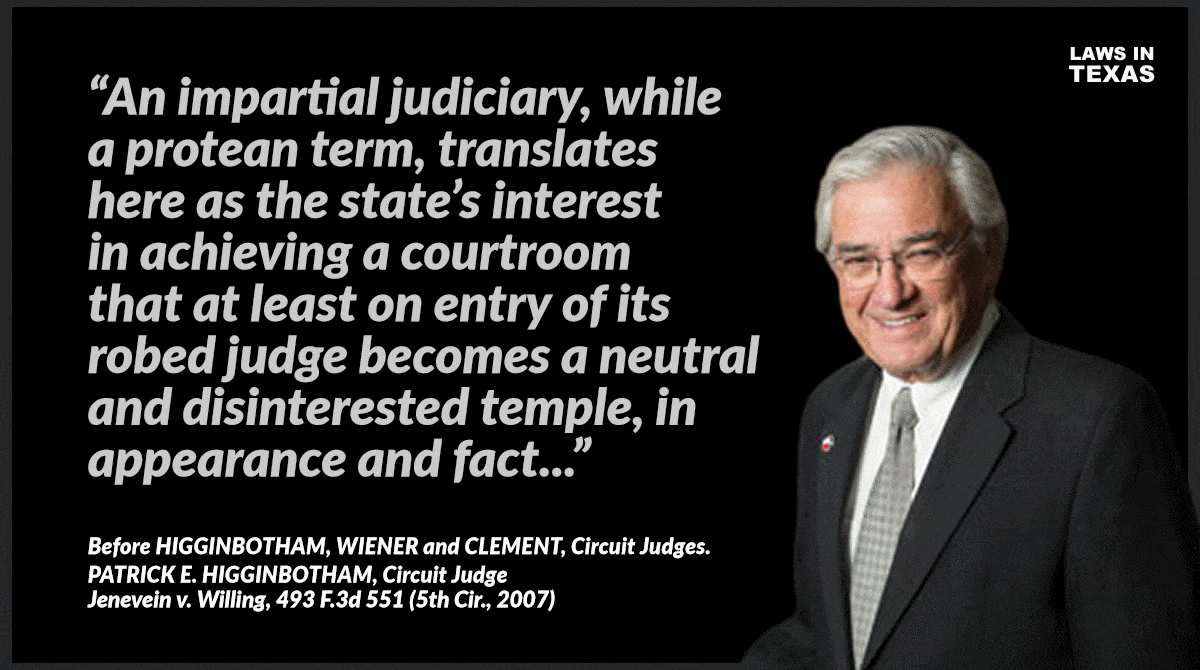
Burke v. Hopkins, S.D. Texas, 29th October, 2019
PLAINTIFFS REPLY TO DEFENDANTS RESPONSE TO PLAINTIFFS MOTION TO STAY PROCEEDINGS
Plaintiffs Joanna & John Burke (“Plaintiffs”) reply to Hopkins as follows;
“A judge who receives information clearly establishing that a lawyer has committed a violation of the Texas Disciplinary Rules of Professional Conduct should take appropriate action…” and “A judge having knowledge that a lawyer had committed a violation of the Texas Disciplinary Rules of Professional Conduct that raises a substantial question as to the lawyer’s honesty, trustworthiness or fitness[1] as a lawyer in other respects shall inform the Office of the General Counsel of the State Bar of Texas or take other appropriate action.”[2]
[1] See Hazel-Atlas Glass Co. v. Hartford-Empire Co., 322 U.S. 238, 246-47, 64 S.CT. 997, 1001-02, 88 L.ED. 1250 (1944) (attorney tampering with administration of justice requires vacation of judgment, whether or not behavior actually influenced outcome of trial); id. at 251, 64 S.Ct. 1003 (Roberts, J., dissenting) (“No fraud is more odious than an attempt to subvert the administration of justice.“); Great Coastal Express, Inc. v. International Brotherhood of Teamsters, Chauffeurs, Warehousemen Helpers of America, 675 F.2D 1349, 1357 (4th Cir. 1982) (“Involvement of an attorney, as an officer of the court, in a scheme to suborn perjury would certainly be considered fraud on the court.“), cert. denied, 459 U.S. 1128, 103 S.Ct. 764, 74 L.Ed.2d 978 (1983); H.K. Porter Co. v. Goodyear Tire Rubber Co., 536 F.2D 1115, 1119 (6th Cir. 1976) (“Since attorneys are officers of the court, their conduct, if dishonest, would constitute fraud on the court.“); 7 MOORE’S FEDERAL PRACTICE § 60.33, at 359 (2d ed. 1985) (Attorney’s loyalty to client “obviously does not demand that he act dishonestly or fraudulently; on the contrary his loyalty to the court, as an officer thereof, demands integrity and honest dealing with the court. And when he departs from that standard in the conduct of a case he perpetrates a fraud upon the court.“) –Synanon Foundation, Inc. v. Bernstein, 503 A.2d 1254, 1263 (D.C. 1986).
[2] Rule 3.03(a)(1) (prohibiting lawyers from “knowingly making false statements of material fact or law to a tribunal”), Rule 3.03(a)(5) (prohibiting lawyers from knowingly offering false evidence), Rule 8.04(a)(3) (prohibiting lawyers from “engaging in conduct involving dishonesty, fraud, deceit, or misrepresentation”). – See Case #18-0879, Supreme Court of Texas, 25th October, 2019, COMMISSION FOR LAWYER DISCIPLINE v. MARK A. CANTU
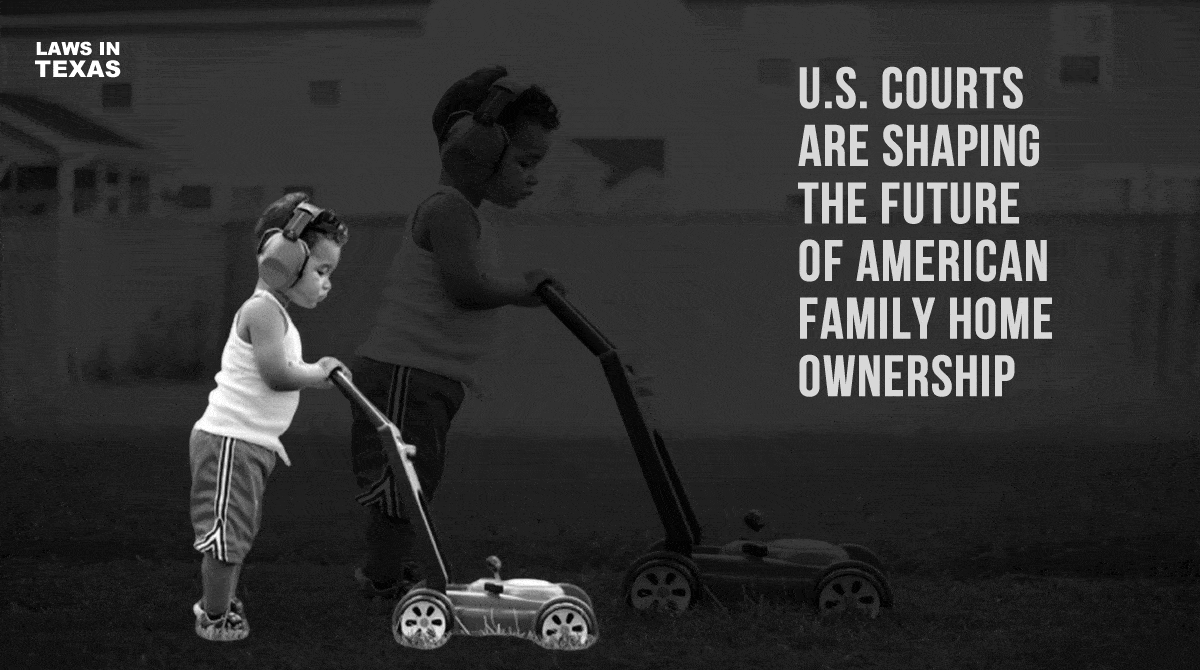
Hopkins summary responses are shown below along with Burkes reply, which also addresses the reasons why the above cases and citations are very important in deciding the pending motion[s], addressing the violations; the dishonest and unlawful acts of the lawyers proceeding pro se before it, and this case in general;
Hopkins: The Dodd-Frank Act and FDCPA has no bearing or effect on this matter.”
Firstly, there is the jurisdictional question;
“The Court today holds that this Court and the federal courts below must refrain from exercising their jurisdiction to decide this lawsuit properly brought.
It remands the case to the Court of Appeals and implies that a state court should be the one to determine two questions of state law to avoid a federal constitutional question which is also presented.” – Clay v. Sun Insurance Office, 363 U.S. 207, 213 (1960).
The Burkes argued [and not for the first time] that the State Court is the correct and only domain that should hear this lawsuit but remand was denied and also in the case of Ocwen, now on appeal.
“It would be a temerarious man who described the constitutional question decided below as frivolous.” – Clay v. Sun Insurance Office, 363 U.S. 207, 213 (1960).
This is cemented by the above US Supreme Court case. It also makes Hopkins arguments moot.
The question itself is answered in (c) below.
[1] Rule 3.03(a)(1) (prohibiting lawyers from “knowingly making false statements of material fact or law to a tribunal”), Rule 3.03(a)(5) (prohibiting lawyers from knowingly offering false evidence), Rule 8.04(a)(3) (prohibiting lawyers from “engaging in conduct involving dishonesty, fraud, deceit, or misrepresentation”). – See Case #18-0879, Supreme Court of Texas, 25th October, 2019, COMMISSION FOR LAWYER DISCIPLINE v. MARK A. CANTU
Hopkins: “The Burkes name calling (“Rogue Debt Collector”) and allegations regarding the status of Hopkins Law, PLLC and its attorneys simply have no foundation in the law.”
Unbonded debt collecting law firm[s] in Texas (with no surety bond as required by the State of Texas) e.g. Hopkins Law, PLLC, would fall squarely into this citation:
“In In re Lenahan, Gardin v. Lenahan, et al. 05-70108 MJK another “edge” was addressed. Rogue attorneys violated the FDCPA in attempting to collect their client’s debts. This Court ruled that damages arising from the willful and malicious conduct of the attorney/debtors were non-dischargeable in their bankruptcy case.” In re Greason, Case No. 07-00357K, AP No. 07-1077 K, at *15 (Bankr. W.D.N.Y. Mar. 10, 2009).
Hopkins:“The First Amended Complaint [Doc. 27] does not contest the constitutionality of the FDCPA, nor does it dispute the validity of Texas Finance Code 392. And “the court may reject the constitutional challenge…”.
Hopkins is dishonest. See Doc 27, footnote 1 and Doc. 28, p.15-19 [‘Hopkins Motion to Dismiss Amended Complaint’] wherein Hopkins responds; “…because they failed to post bond required by Tex. Fin. Code §392.101.” [“TDCA or TFC”]. Both reference Constitutional challenges. Hopkins exhausts from #28-37 of their motion defending and citing the FDCPA, TDCA and/or TFC discussing the Constitutional Challenge[s]. Secondly, per the docket this court has not issued the Constitutional Challenge letters to the AGs, they remain dormant. This, despite the fact the State of Texas and the unconstitutional CFPB has been on notice[1] by the Burkes about the TFC Surety Bond question[s] and yet they have failed to answer the Burkes formal requests, and prior to the Constitutional challenge[s] raised here.
This case turns on the decision of Burke v. Ocwen, 5th Circuit;
The Burkes have and still argue Hopkins does not have authority to act for Ocwen[2]. Hopkins filed a reply to the Burkes Motion to Stay at the 5th Circuit Ocwen Case on Friday, 25th October.
The Burkes replied on Monday via a Supplemental Pleading (with Exhibits) [and which this court can take judicial notice].
As stated in the appeal and which is relevant here; Hopkins’ 5th Circuit filing was more about themselves and alarmingly [if you’re the client] conflicts with Ocwens’ own stance in the Florida litigation with CFPB that “an Act” [Dodd-Frank] which is unconstitutional is “not a law” and their case should be dismissed, with prejudice.
As such, Hopkins claims that the Ocwen Florida case is “irrelevant” to this case is farcical and absurd.
[1] See Supplemental Pleading and Exhibit Exhibit-Hopkins-TFC-Texas-Gov in the 5th appeal and Doc. 27, footnote 1 (as an example).
[2] July 2019; Ocwen was issued ANOTHER cease and desist consent order from the STATE OF MAINE; ORDER, in part; “The Bureau finds that OLS had no authority to execute documents as an Attorney in Fact” for legal entities which have had no corporate existence [similar to the case of Deutsche Bank v. Burke case before this court [correct decision(s) aligning with Maine] and the 5th Circuit [#15-20201 and 18-20026] incorrectly reversing this court and based on a fraud upon the court appeal filed by dishonest Hopkins] since March 13, 2012 at the latest and that OLS’s uses of those documents constitute violations of 32 M.R.S. § 11013(2).”
See https://www.maine.gov/tools/whatsnew/index.php?topic=PFR-combined-press&id=1415353&v=article2019
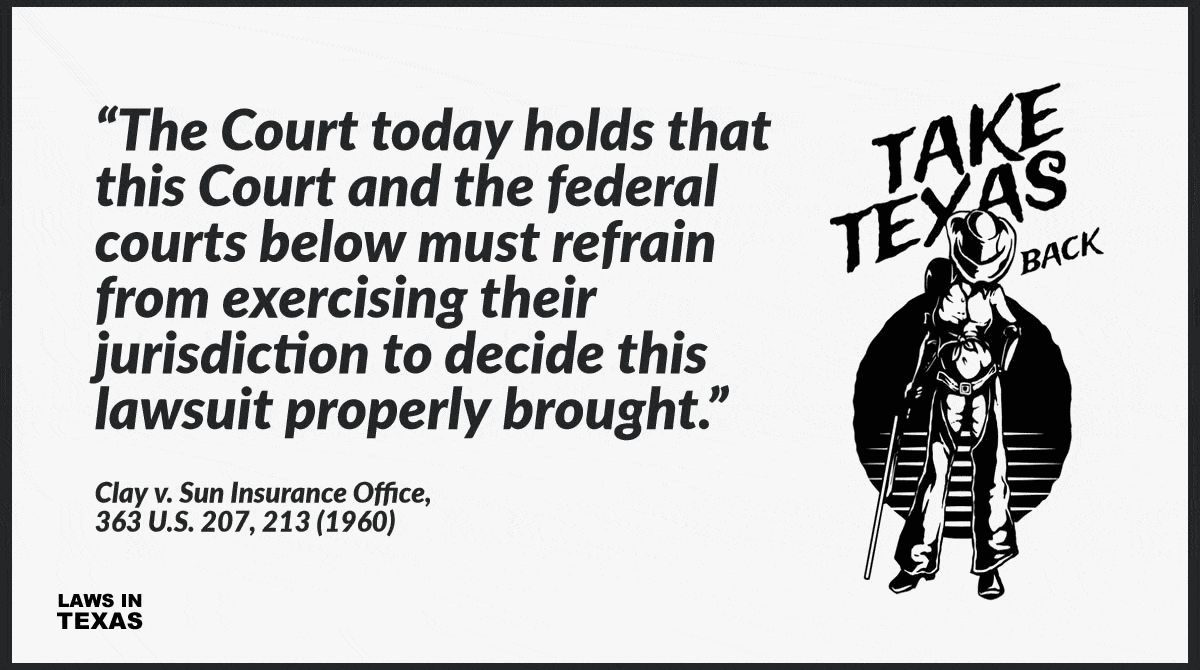
Hopkins: “The Burkes non-related intervention case somehow relates to this suit against its adversary’s [pro se] attorneys; And; The eleventh circuit case (the Burkes intervention in an appeal between Ocwen and the Consumer Financial Protection Bureau) involves no matters at issue in this case.
First, see prior answers and generally, why the Ocwen/CFPB lawsuit is extremely relevant. Secondly, Hopkins filed an unauthorized Supplemental Response in Opposition to Motion to Stay [Doc. 14] wherein at p.2 they include EXHIBIT A, the CFPB v. Ocwen Florida case which they ‘judicially noticed’ this court and rely upon for their Motion to Dismiss. Absurdly, Hopkins now claim it is ‘non-related’ when they claim to be attorneys for Ocwen in the cases #4543 and #4544 before this court and/or on appeal.
The Ditech Bankruptcy. Hopkins: “A ruling by Judge Sim Lake in regard to a Ditech matter is just simply irrelevant.”
In re Ditech Holding Corp., Case No. 19-10412 (JLG) (Bankr. S.D.N.Y., 2019) Doc. 15, P. 423 of 1003 shows Hopkins Law, PLLC on the ‘List of Creditors’. This confirms (i) Hopkins holds a financial interest in Ditech rulings in this court and the Bankruptcy (ii) Hopkins Law, PLLC is for the first time in this case, confirmed as an attorney representing a known non-bank servicer, and or sub-servicer (“mortgage servicer”) (seeking payment of services) and casts further darkness over their claims per their Motion to Dismiss [Doc. 6] and repeated in Doc. 28, the Second Motion to Dismiss by Hopkins wherein they state they “act as counsel for those entities (“Deutsche” and “Ocwen”) in the litigation, appeals and all subsequent litigation…” Hopkins go on to provide a list of all ‘related’ cases. The PSAs contractual agreements do not support Hopkins representing Ocwen and Deutsche at the same time without (i) a conflict of interest and (ii) providing this court the necessary proof they are (a) legally retained and (b) have yet to show authority in any and all of the lawsuits past and present, in this court by these corporations and despite the frequent disposals and purchases of MSRs over the years which the Burkes allege would prove the Burkes arguments that Hopkins and/or their ‘client[s]’ do not have legal authority. The Burkes arguments are further solidified by the case in Maine, wherein Ocwen was issued a ‘cease and desist’ for the exact same reason as Magistrate Judge Smith ruled for the Burkes in this court in the Deutsche case, twice. It is further confirmation that the Burkes have more than met their legal burden to ensure that Hopkins Second Motion to Dismiss is denied as the Burkes pleadings meet the standard to proceed to discovery and a jury trial.
Hopkins: The Burkes Believe the Stay will Provide Due Process
That is correct. “In Mullane v. Central Hanover Bank Trust Co., 339 U.S. 306, 314 (1950), this Court recognized that prior to an action which will affect an interest in life, liberty, or property protected by the Due Process Clause of the Fourteenth Amendment, a State must provide “notice reasonably calculated, under all the circumstances, to apprise interested parties of the pendency of the action and afford them an opportunity to present their objections.”” – Mennonite Board of Missions v. Adams, 462 U.S. 791, 795 (1983). – See OCWEN LOAN SERVICING LLC V. GONZALEZ FINANCIAL HOLDINGS CIVIL ACTION NO. H-13-2441, S.D. Tex., Doc. 42, holding when Due Process is raised in pleadings, it applies (affirmed by 5th Circuit #15-20176 for Deutsche and Ocwen).
Hopkins: This Court is biased against the Burkes
Hopkins perpetrated his first fraud on the court in the appeal in the Deutsche case.[1] This system of fraud on the court was repeated in Howard v. PNC. Both are well documented and before this court. Hopkins also incites the court with lies and untruthful testimony as this court has personally witnessed and uses legalese and mischief to attack the Burkes integrity, calling them “vexatious litigants” who are filing a “baseless” lawsuit and are “personally attacking” Hopkins and the case should be dismissed “with prejudice” and so on. Hopkins deception, repetitive dishonest testimony and fraud on the court (“the System”) should be rejected by this court AND their violations reported.
[1] This is also often referred to as falsification [of evidence] in courts. “It is well-established that falsification of [company] documents is a legitimate reason for termination [of Hopkins unlawful appeal in Deutsche v. Burke #15-20201]. See, Kiel v. Select Artificials, Inc., 169 F.3D 1131, 1135 (8th Cir. 1999); Ward v. Procter Gamble Paper Prods. Co., 111 F.3D 558, 560 (8th Cir. 1997); Price v. S-B Power Tool, 75 F.3D 362, 364 (8th Cir. 1996).” – Sornsen v. Wackenhut Corporation, 01-CV-1967(JMR/FLN), at *1 (D. Minn. Feb. 27, 2003).
Conclusion: On Friday, the States’ highest court reminded the circuit in length and in particularity, addressing “federal judges” (who are also lawyers) in Texas of their Oath and legal obligations in reporting attorneys before them, who act in bad faith, malice, dishonesty and lack of integrity and trustworthiness. See the Supreme Court of Texas case of COMMISSION FOR LAWYER DISCIPLINE v. MARK A. CANTU. The Burkes now ask the court to fulfill that obligation in this matter, so that due process and justice may be served. The Burkes motion[s] should be granted along with any and all other relief this court may provide.
RESPECTFULLY submitted this 29th day of October, 2019.









